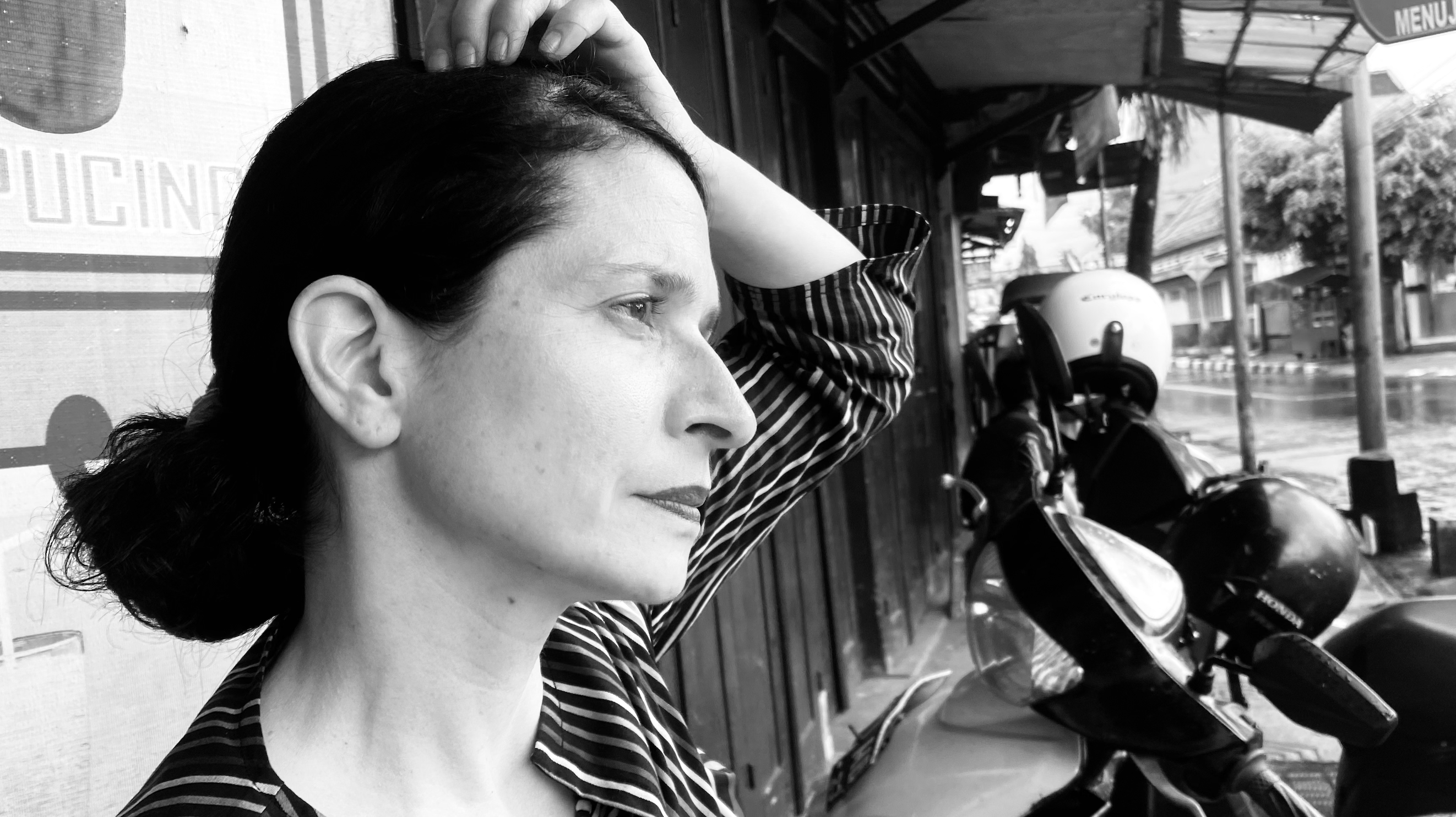Photo Credit: Attila Bartis
Chloe Aridjis is a Mexican American writer based in London. She is the author of three novels, Book of Clouds, which won the Prix du Premier Roman Etranger in France, Asunder, set in London’s National Gallery, and Sea Monsters, awarded the 2020 PEN/Faulkner Award for Fiction. Chloe has written for various art journals and was guest curator of the Leonora Carrington exhibition at Tate Liverpool. She was awarded a Guggenheim Fellowship in 2014 and the Eccles Centre & Hay Festival Writers Award for 2020. Chloe is a founding member of XR Writers Rebel, a group of writers who focus on addressing biodiversity loss and the climate emergency: www.writersrebel.com.
Chloe Aridjis will be at City Lights, in conversation with Lydia Millet, on Wednesday, September 6 at 6:00pm PT to celebrate the publication of her new book Dialogue with a Somnambulist: Stories, Essays, and a Portrait Gallery from Catapult Books. Register here!
Where are you writing to us from?
From my desk in my old bedroom in Mexico City. I’ve been living abroad since I was 17, but return home at least twice a year. My parents have left my room exactly as it was when I left for university and as soon as I enter, I travel into the past.
What is bringing you joy right now, personally/artistically/habitually?
I’m in the final edits of a new novel that has a magic lantern at its center so any book that deals with pre-cinema toys, instruments and illusion is especially exciting. And always nearby while I write is my magnificent cat Ludwig, rescued from the Greek island of Hydra ten summers ago.
Which writers, artists, and others influence your work in general, and this book, specifically?
My father was of course the first writer in my life; watching him at his desk while I grew up, reading his poetry.
Other constants: Kafka, Borges, Woolf, Gogol, Rilke, Bernhard, Rulfo, Poe and Baudelaire.
Goya, Bosch, Rembrandt, Dürer, Caspar David Friedrich, Ernst Ludwig Kirchner and Munch.
Bach, Beethoven, Schubert and any piano recording by Dinu Lipatti.
Bergman’s The Seventh Seal and Fanny and Alexander, Kubrick’s Barry Lyndon, Buñuel’s Los Olvidados, Tarkovsky’s Andrei Rublev, Herzog’s Aguirre, the Wrath of God and The Enigma of Kaspar Hauser, and Nicolas Roeg’s Don’t Look Now.
This latest book of mine, Dialogue with a Somnambulist, spans over fifteen years so it would be hard to recall all of the inspiration but I can safely say that Friedrich, Nick Cave, Kirchner and the somnambulist from The Cabinet of Dr. Caligari were all lurking in my head while I wrote many of the pieces.
What books are you reading right now and would you recommend any to others?
I’m currently reading Laura Cumming’s Thunderclap: A Memoir of Art and Life and Sudden Death, a luminous journey through 17th century Dutch painting centered round the mysterious genius that was Carel Fabritius. And I recently finished Simon Schama’s Foreign Bodies: Pandemics, Vaccines and the Health of Nations, fascinating and essential.
Among the many books I’d recommend, for those searching for an extra jolt of inspiration, are Lotte Eisner’s The Haunted Screen, Georges Perec’s Species of Spaces, Bachelard’s The Poetics of Reverie, The Arrière-Pays by Yves Bonnefoy, Jean Starobinski’s Portrait de l’artiste en saltimbanque (still waiting to be translated into English), Joseph Roth’s essays, the experimental novels of Ann Quin and J.G. Ballard, and the short stories of Thomas Mann, Ryunosuke Akutagawa and Clarice Lispector.
If you opened a bookstore, where would it be located, what would it be called, and what would your bestseller be?
I would open a bookshop in north London, where I live, devoted to the animal kingdom and the climate emergency, and call it Pangolin. Among its bestsellers would be Olga Tokarczuk’s Drive Your Plow Over the Bones of the Dead, Max Frisch’s Man in the Holocene, Petra Kelly’s Thinking Green!, Jay Griffiths’ Why Rebel and Amitav Ghosh’s The Great Derangement.

